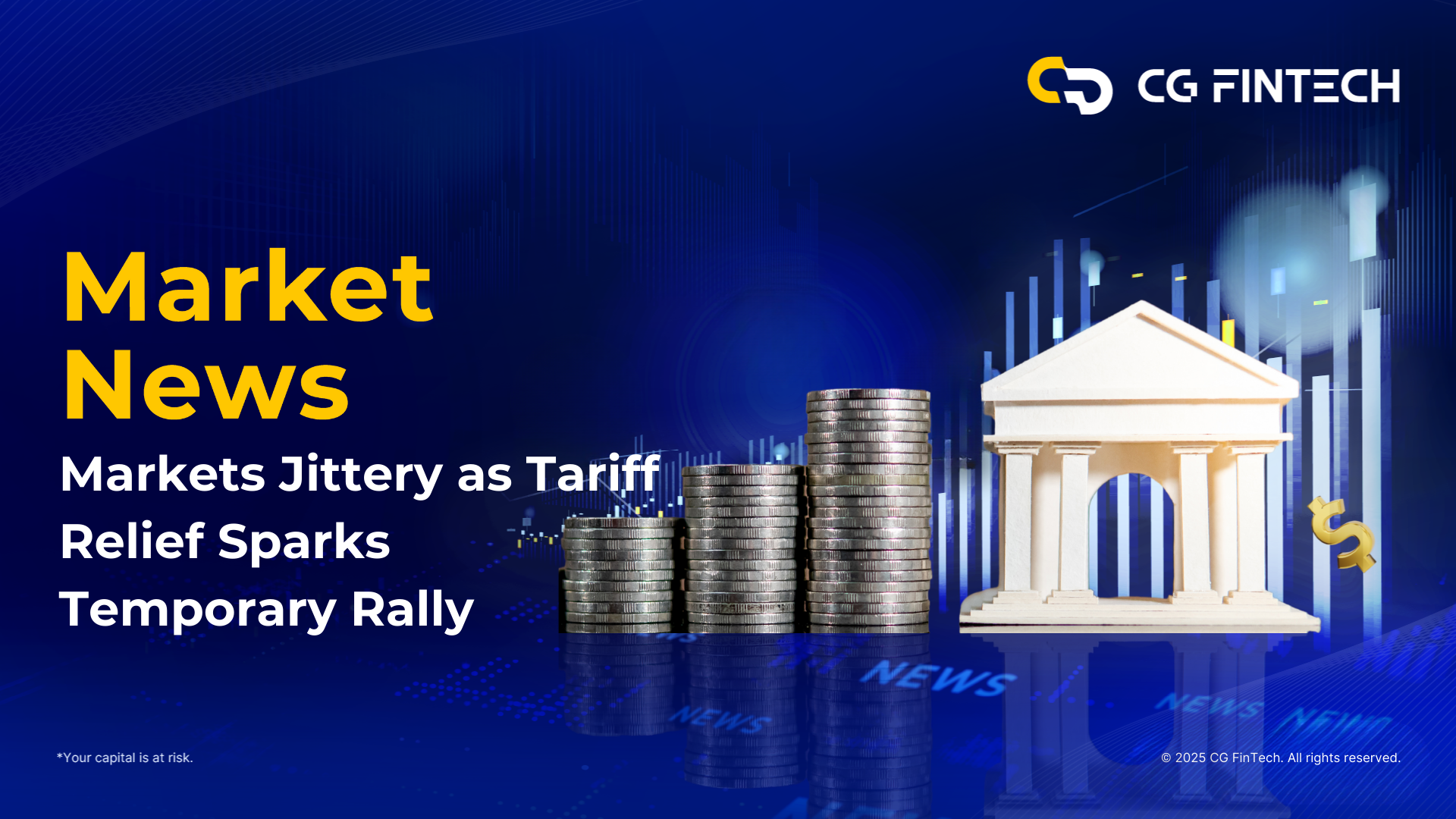Markets kicked off the week with a sigh of relief, but make no mistake—volatility remains the dominant force. As global investors digest temporary tariff exemptions and shifting monetary outlooks, the mood is still one of caution, not celebration.
Apple Boosts Dow, But Futures Hint at Doubt

The major U.S. indices rallied Monday on the back of President Trump’s tariff reprieve for tech products. Apple led the charge, jumping 2.2%, while the Dow added over 300 points.
But Tuesday’s futures tell a different story—flat to slightly down. Traders appear wary of chasing a one-day rally without more clarity on trade direction.
Insight: Relief rallies can’t erase systemic risk. Big names like Apple and Tesla may enjoy short-term boosts, but long-term positioning still depends on broader policy moves.
Tech: Temporary Tailwind or Structural Shift?
While tech names benefit most directly from tariff exemptions, the underlying question is whether this is a policy pivot or political posturing. Markets responded positively, but the cautious Tuesday open shows investors aren’t betting the house on stability just yet.
Tesla and Nvidia are among the most watched stocks today, with traders eyeing resistance and support levels closely amid choppy conditions.
Asia Reacts: Modest Gains on Tariff Reprieve

Asian markets opened higher following the U.S. announcement, particularly in auto and electronics sectors. Japanese auto stocks moved higher on speculation that auto-related tariffs may also be softened.
However, bond markets across the region showed no major shift, suggesting relief is more sentiment-driven than structurally supported.
Banks Position for the Chaos

Deutsche Bank made headlines today with the appointment of Tom Swerling (ex-Barclays) as its new global head of Equity Capital Markets. It’s a strategic move aimed at navigating what could be a bumper season for equity issuance—assuming market conditions stabilize enough to allow it.
Goldman Sachs’ Q1 beat, announced yesterday, reinforces that investment banks are thriving amid the turmoil—trading activity is surging, even if long-term investment remains cautious.
Outside the Core: Star Entertainment’s Losses Raise Sector Alarms
In Australia, Star Entertainment reported a $302 million loss for H1 2025. Regulatory headwinds and tight consumer spending are squeezing gaming revenues. A potential rescue deal is in the works, but it’s another reminder that liquidity pressures aren’t confined to U.S. or European banks—they’re global.
Analyst Take: Relief Isn’t Recovery
While the temporary pause in tariffs has steadied nerves, the underlying drivers of volatility remain intact:
• Unpredictable trade policy
• Geopolitical noise
• Sector-specific earnings swings
• Central bank positioning
Smart money is staying tactical—watching the leaders (Apple, Nvidia, Tesla), positioning around sector reactions, and avoiding overexposure until the macro picture clears.
Final Thought
This isn’t a crash—it’s a recalibration. And in times like this, volatility isn’t the enemy—it’s the opportunity. But only for those who manage risk as actively as they chase returns.
Stay ahead of the markets—follow CG FinTech’s Media Center for daily insights, expert takes, and trading opportunities across global assets.
Forward Looking Statement Disclaimer
This document contains forward-looking statements, which can generally be identified by the words “expects,” “believes,” “continues,” “may,” “estimates,” “anticipates,” “hopes,” “intends,” “plans,” “potential,” “predicts,” “should,” “will,” or similar expressions. Such statements are based on CG FinTech’s current expectations and assumptions, but actual results could differ materially from those anticipated due to a number of risks and uncertainties. CG FinTech does not guarantee the accuracy or completeness of these statements and undertakes no obligation to update or revise any forward-looking statements.
Disclaimer
The information provided herein is for informational purposes only and does not constitute an offer or solicitation to buy or sell any financial instruments. Trading Contracts for Difference (CFDs) and foreign exchange (forex) carries a high level of risk and may not be suitable for all investors. It is important to fully understand the risks involved and seek independent financial advice if necessary.
